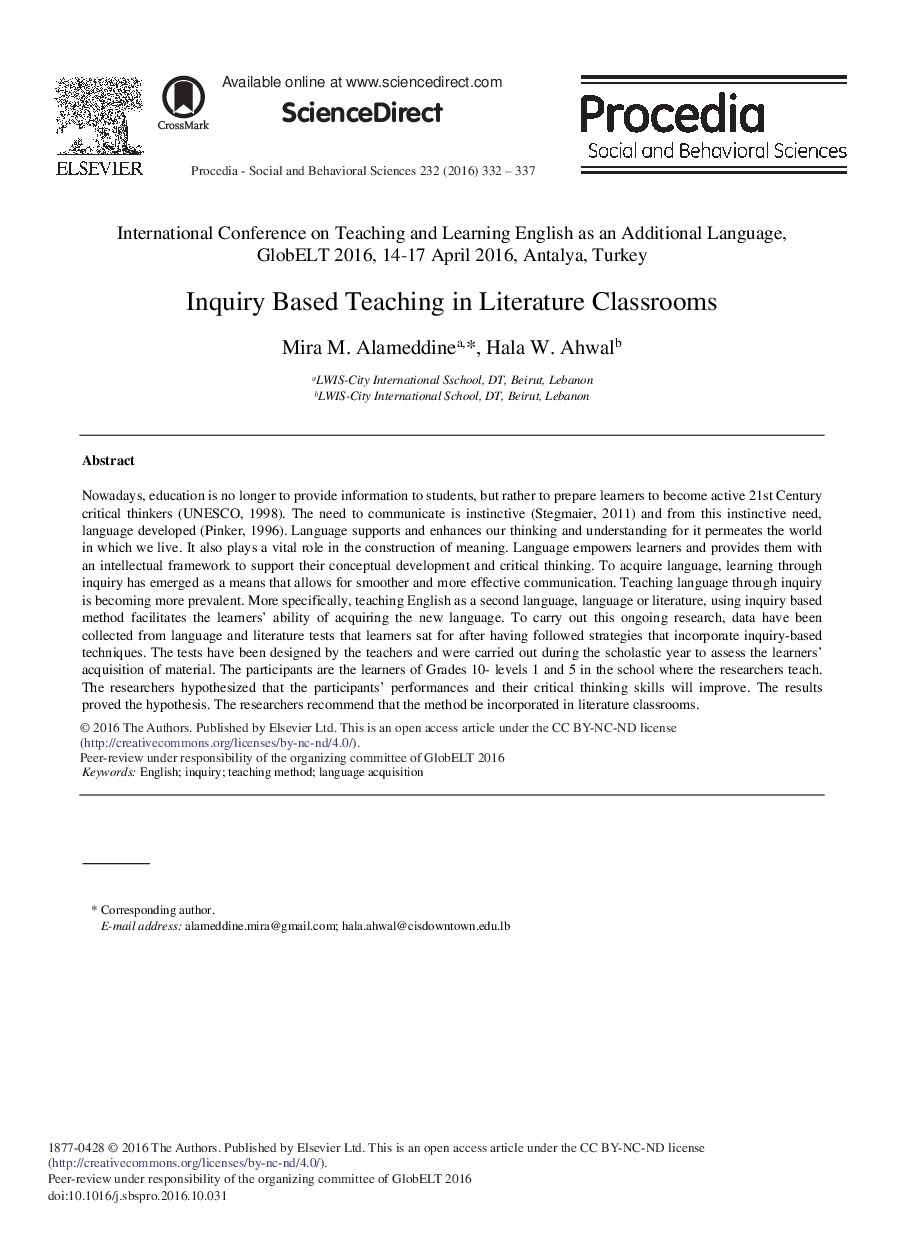| Article ID | Journal | Published Year | Pages | File Type |
|---|---|---|---|---|
| 5125909 | Procedia - Social and Behavioral Sciences | 2016 | 6 Pages |
Nowadays, education is no longer to provide information to students, but rather to prepare learners to become active 21st Century critical thinkers (UNESCO, 1998). The need to communicate is instinctive (Stegmaier, 2011) and from this instinctive need, language developed (Pinker, 1996). Language supports and enhances our thinking and understanding for it permeates the world in which we live. It also plays a vital role in the construction of meaning. Language empowers learners and provides them with an intellectual framework to support their conceptual development and critical thinking. To acquire language, learning through inquiry has emerged as a means that allows for smoother and more effective communication. Teaching language through inquiry is becoming more prevalent. More specifically, teaching English as a second language, language or literature, using inquiry based method facilitates the learnersâ¿¿ ability of acquiring the new language. To carry out this ongoing research, data have been collected from language and literature tests that learners sat for after having followed strategies that incorporate inquiry-based techniques. The tests have been designed by the teachers and were carried out during the scholastic year to assess the learnersâ¿¿ acquisition of material. The participants are the learners of Grades 10- levels 1 and 5 in the school where the researchers teach. The researchers hypothesized that the participantsâ¿¿ performances and their critical thinking skills will improve. The results proved the hypothesis. The researchers recommend that the method be incorporated in literature classrooms.
